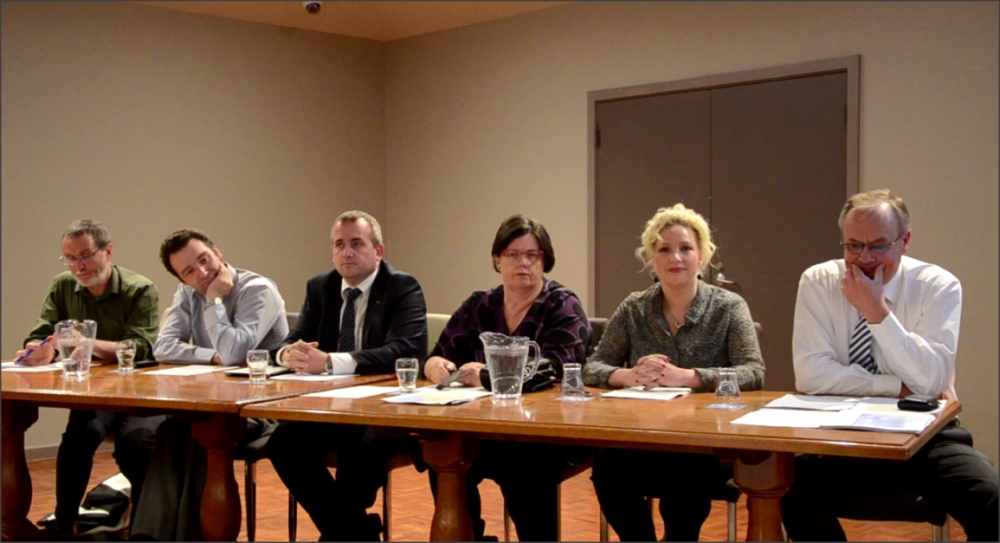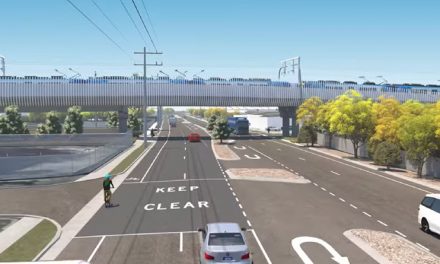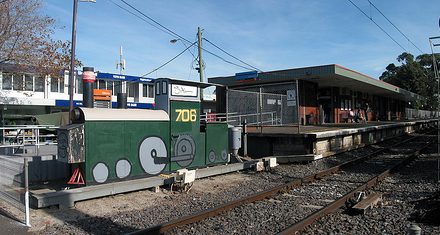The Altona Loop Group held its first anniversary public forum last Thursday 17th May 2012. Credits should go to Metro CEO Andrew Lezala and PTV (Public Transport Victoria) executives for their attendance in the presence of an uncompromising audience.
Some positive outcomes arise from this forum. Andrew Lezala has made the following promises:
- Reducing waiting times at Newport from 7 to 4 minutes.
- Minimizing cancellations through the Altona Loop because of the 22 minutes service frequency, in response to complaints that Altona residents need to wait at least 44 minutes for the next train in the event of cancellations.
- Investigating and fixing early train departures.
- Extracting Altona Loop data from the Werribee Line’s performance data. Currently, data are only measured at Laverton, Newport and Flinders Street for the Werribee Line.
- Providing the Altona Loop group with quarterly performance data.
- More informative announcements on trains going to the Altona loop stations.
Other plans/promises include:
- New disabled access ramp to bridge the gap between the platform and trains at Newport (read this).
- Building a new shelter at Newport.
- Reducing the waiting times at Laverton (Altona to Werribee travel) from the current 17 minutes (response from PTV to a written question from the audience).
- Reversing the Altona loop timetable changes only after 2016 when capacity is freed on the Werribee Line track by transfer of V-Line trains to the Regional Rail Link (Ref 1, 2).
PTV’s Director of Network Operations, Norman Gray gave a rough estimate of the cost to duplicate the Altona Loop at a modest $10-12 million, excluding costs to purchase land. PTUA (Public Transport User Association) President Daniel Bowen commented that this is just a fraction of the $93 million spent on upgrade works at Laverton station.
With partial duplication (from Laverton to Westona and from Seaholme to the Altona Junction, just beyond the Refinery), land acquisitions could be eliminated or minimized. Hence, the duplication of the Altona Loop is something economically affordable and which the community should lobby for.
An important perspective that the guests (Members of Parliament) had offered is how to address the inequity of train services to Altona commuters. Daniel Bowen had commented that Altona and Williamstown are the only two metropolitan areas to contend with 22 minutes service frequency during peak hours. All other Zone 1 areas have higher train frequencies. Metro and the Department of Transport have been asking Altona commuters to hold an altruistic view of the timetable change, that this will benefit other parts of the network. However, the basis of this argument is debatable. Is it justifiable to achieve network efficiency at the expense of inequity/unfairness to selected areas, especially if this involves taking away services or a deterioration in the quality of services delivered?
It has been mentioned a few times during the Forum that it was public transport issues that contributed to the downfall of the Brumby government. The voters had placed their bets on the Baillieu government to fix the train problems. It would be an unwise strategy if the current government is perceived as not listening or addressing the issues raised by the communities. It will be worse still if the authorities are in denial or rebuttal of the problems that commuters have genuinely experienced.





Good summary Anthony. I believe they also promised that a new computer system would enable them to give more information on announcements and their screens, thereby including references to stations on the Altona Loop by name. This would help alleviate a lot of the confusion at Flinders St, Southern Cross, Newport and Laverton. Hopefully we will be able to easily see which platforms to go to and which trains are running through the Altona Loop.
"All other Zone 1 areas have services every 10 minutes or less during peak hours." — actually that's not quite true. The Upfield line and also the Alamein line have trains about every 20 minutes in peak. But as I said, only Williamstown and Altona are as infrequent as every 22 minutes.
Thanks Daniel, the post is updated according to your feedback.